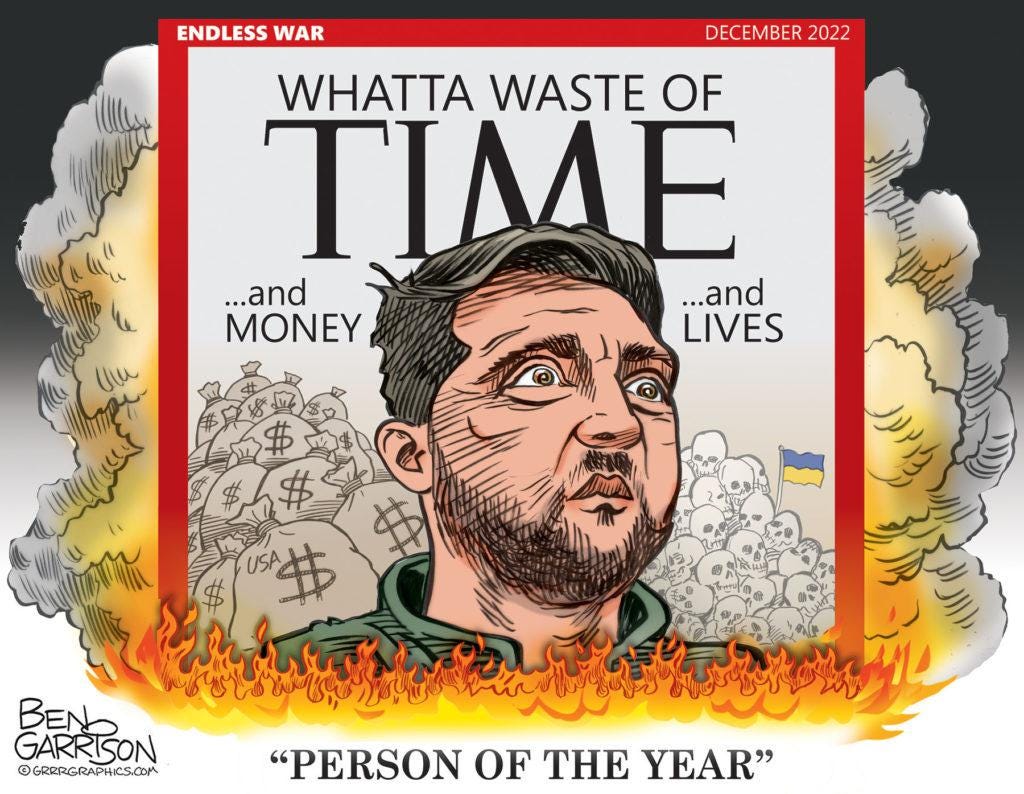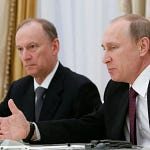Topics:
Welcome back to Political Misfits on Radio Sputnik, where we bring you news, politics and culture - without the red and blue treatment. I’m John Kiriakou here with Michelle Witte.
https://www.nytimes.com/2023/12/11/us/politics/us-ukraine-war-strategy.html
The Ukrainian president did not speak with US members of Congress last week, as was expected, but he’s doing us all one better by coming to Washington to press the flesh in person. He spoke yesterday to American and foreign military personnel at the National Defense University, and today he’s meeting with members of Congress - among them Chuck Schumer and Mitch McConnell in the Senate and Mike Johnson in the House. He’ll also speak with President Joe Biden. So - what does the president of Ukraine have to say about US border policy? Because that’s what this fight has become about. Aid for Ukraine has been bundled into a package of aid for Israel and Taiwan, but also with funding and legislation over the US border. If Republicans were willing to separate the issues, they would have done so by now, but everyone knows Congress is so divided on the border, and so unwilling to look at a real, standalone policy overhaul, that this is the only way to get anything done, apparently. So … is Zelensky going to be trying to bridge this partisan gap on refugee admissions to the US?
The tack Zelensky’s administration seems to be taking lately is “if we don’t get this funding, we’re going to lose.” Which, sure, seems likely. The problem is that a bunch of Republicans have already decided that Ukraine’s going to lose anyway, and are asking things like “what is $61bn going to accomplish that $100bn hasn’t,” in the words of JD Vance. And fair enough. This is what Zelensky is saying in public - in his university speech yesterday most recently. Is there anything else he’s going to be saying behind the scenes, or is this is?
Is there an actual chance this spending bill just dies, or is this all a matter of timing - about whether Ukraine and Israel get money before 2024 or after? Do you think it’s possible that Republicans and Democrats just can’t agree on border stuff and both walk away to try again? And what happens then?
What happens to the war effort in Ukraine if its financial support from the US is slashed? Where does the money come from? What spending changes are made?
I have to ask you about some pretty incredible analysis in NPR this morning. The host asked the station’s guest, “Traditionally the Republican party has seen itself as strong on defense and national security - what happened with Ukraine to change that?” Ans:
“Well, some Republicans in Congress share the animus of their party’s leader, former PResident Donald Trump. He doesn’t like Ukraine at all - remember his first impeachment in 2019 was over pressure he put on Zelensky to give him information he could use against Joe Biden …” Etc, etc. So … Donald Trump “doesn’t like Ukraine.” That’s what’s happening here? I mean, Donald Trump is kind of a clown and I guess is capable of just “not liking” whole countries, but … I feel like the fact that this phrase came out of a journalist’s mouth as an explanation as to why we aren’t just going to rubber stamp another hundred billion dollars to a losing war effort says some dire things about the state of analysis in the US. And DC liberals love NPR. What’s going on here, and what is the impact of allowing this kindergarten level analysis to be broadcast as serious news?
Let’s talk about what might come on the ground in Ukraine. Fresh off the Washington Post’s little series on how the US and Ukraine were at odds over strategy this summer, we have the NYT telling us that we’re once again at odds in crafting a new strategy for the next year. But I’m confused, because the Post told me earlier this year, American commanders were pushing for stronger offensive moves and Ukranian commanders wanted more conservative actions. Now the Times says “The Americans are pushing for a conservative strategy that focuses on holding the territory Ukraine has, digging in and building up supplies and forces over the course of the year. The Ukrainians want to go on the attack, either on the ground or with long-range strikes, with the hopes of seizing the world’s attention.” Which is it?
Politico EU had a story today declaring “sanctions aren’t working,” mostly because big Western companies are still managing to get their dual-use products to Russian markets. It offered as an example the list of companies making the so-called “high-priority battlefield items” trafficked to Russia that the Western coalition wants to block. Number one? Intel - an American company. Number two, Huawei. Then Analog Devices, AMD, Texas Instruments and IBM — all of which are American. It says Russian imports of microelectronics, wireless and satellite navigation systems and other critical parts subject to sanctions have recovered to near pre-war levels, largely because Russia has been able to reconfigure its supply chains, but also because despite all the sanctions written down very formally on paper, Western countries haven’t created the infrastructure for private companies to comply with these sanctions and track these new supply ways, nor for their governments to check up on them - at least, according to Politico’s analyst. At this point, can we conclude that Western countries just don’t care if these sanctions do anything? I find it especially interesting that it is overwhelmingly the US that is making money through this supposedly sanctioned trade - while Europe scrounges around for energy. What do you think people should understand from stories like these - if you accept the premise, that is?
There were some quite dramatic headlines on Sunday about the conversation between Putin and Benjamin Netanyahu, Israel’s prime minister. “Netanyahu interrupts cabinet meeting to talk to Putin,” was the gist of it. But then we didn’t hear much about it, other than some reports later that Netanyahu was het up about Russia’s relationship with Iran. Anything to note here?
I want to ask a question about some news out of Gaza recently. Israel has announced that 105 of its soldiers have been killed during its ground offensive in Gaza, which began around October 20. But 20 of them - nearly 20% - have been killed by friendly fire or friendly fire-type accidents - so, not getting shot by your own guys, but getting run over by your own guys, for example. That sounds pretty high to me - though it apparently isn’t that high by recent US standards, which was shocking. Desert Storm had a particularly high friendly fire casualty rate, for example. So … I don’t know, anything to see here? Anything to interpret from this piece of news? And … does this give any credence to the number of reports we’ve seen that many October 7th casualties could also have been the result of friendly fire?
Also - CNN is very concerned about the whereabouts of Alexei Navalny. Are we all going to learn in a few hours that he’s being transferred to another prison?






















Zelensky Presses the Flesh for $ in DC, Lloyd Austin Threatens to Send Families of Republican Congressmen & Senators to Fight Russia, Trump Doesn't Like Ukraine, US Semiconductor Sanctions Fail, more.